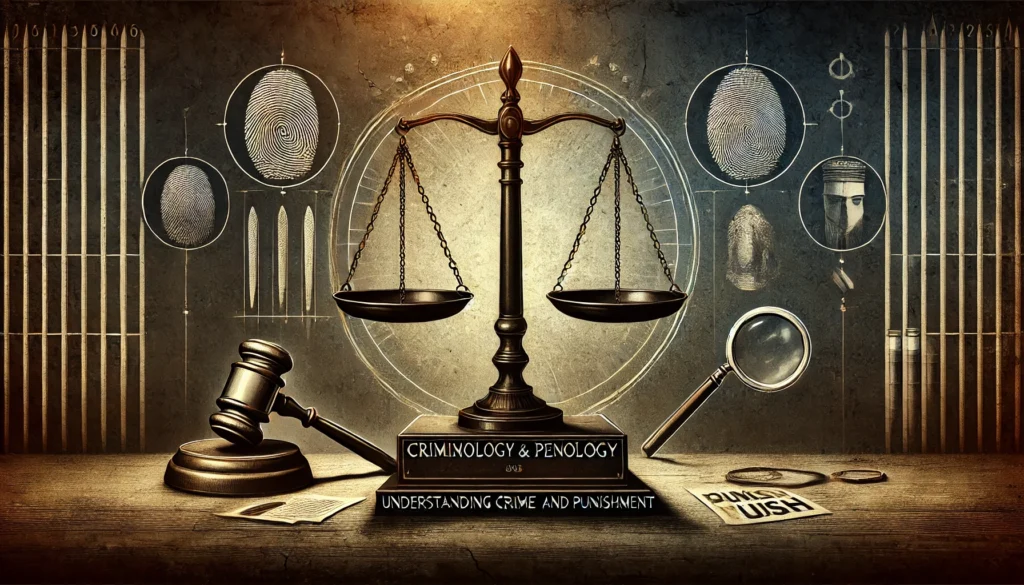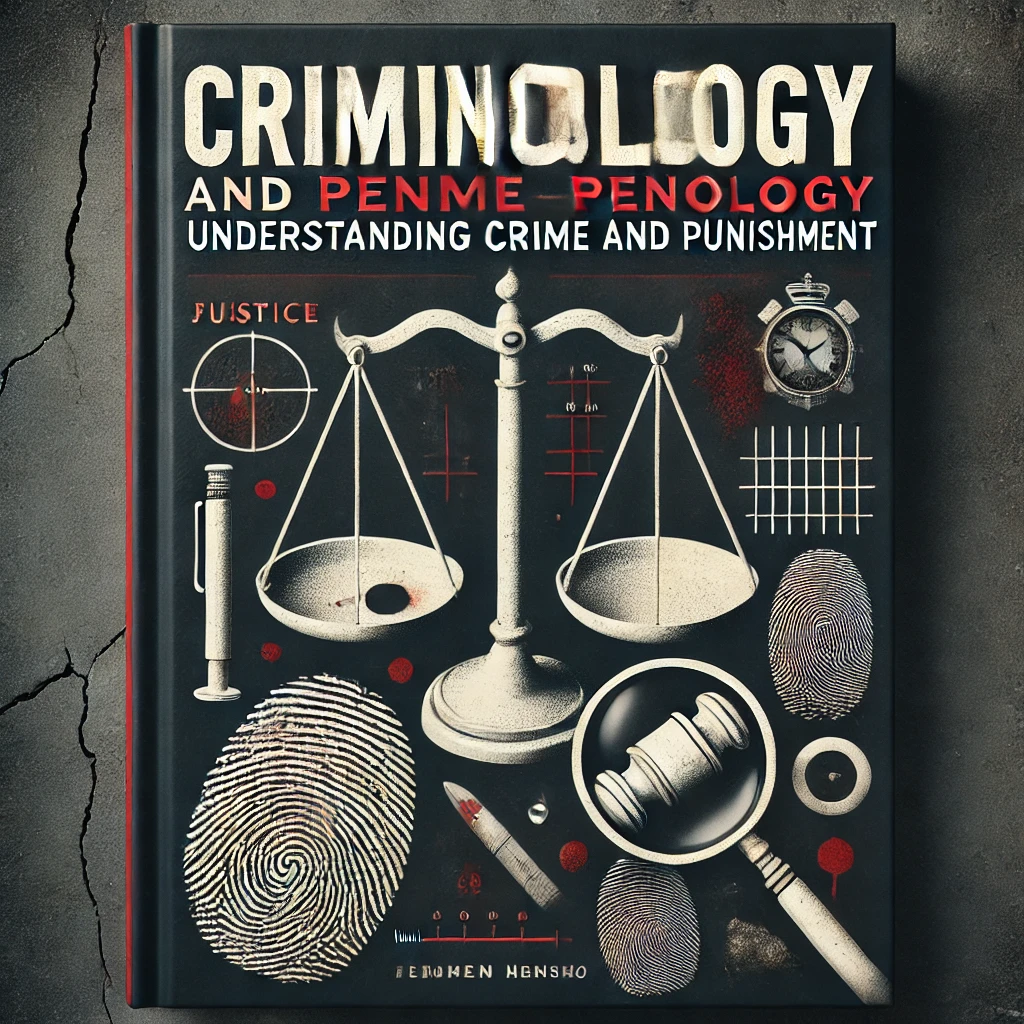Criminology and penology are two interconnected fields that play a vital role in understanding criminal behavior and the systems in place to punish offenders. While criminology focuses on the causes, consequences, and prevention of crime, penology deals specifically with the study of punishment, corrections, and rehabilitation of offenders. The relationship between these fields helps shape criminal justice policies and practices, ultimately influencing how societies approach crime control and justice.
Section 1: The Concept of Criminology
- Definition and Scope of Criminology: Criminology is the scientific study of crime, its causes, effects on society, and its prevention. It examines factors such as biology, psychology, and social environments that contribute to criminal behavior.
- Criminological Theories: From classical theories focusing on rational choice to more modern perspectives on social and environmental factors, criminology offers various frameworks to understand why crimes occur.
- Role of Criminologists: Criminologists conduct research to identify crime patterns and propose solutions for crime prevention, influencing public policy and law enforcement strategies.
Section 2: The Concept of Penology
- Definition of Penology: Penology is the study of punishment, imprisonment, and correctional strategies. It is concerned with the methods societies use to respond to crime, including the effectiveness and ethical implications of various punishment systems.
- Punishment Theories: Penology explores different approaches to punishment, such as deterrence, retribution, rehabilitation, and restoration, each with distinct goals for crime control and offender treatment.
- Corrections and Rehabilitation: A major focus of penology is the rehabilitation of offenders, offering programs designed to reform criminals and reduce recidivism.
Section 3: The Relationship Between Criminology and Penology
- Criminology’s Role in Shaping Penology: Criminological research helps inform penological practices by providing insights into the underlying causes of criminal behavior. Understanding the root causes of crime is essential for developing effective penal systems.
- Influence of Criminology on Punishment Methods: Theories in criminology, such as the social learning theory or strain theory, shape how punishment is viewed and applied. For instance, a shift towards rehabilitation over retribution has emerged from criminological findings about the causes of crime.
- Evaluating Penal Systems: Criminologists evaluate the effectiveness of various punishment systems, including prisons, probation, and community service. These evaluations help refine correctional practices to focus on crime prevention and reducing recidivism.

Section 4: Challenges in Criminology and Penology
- Ethical and Moral Dilemmas: The application of punishment often raises ethical questions, such as the balance between justice and rehabilitation. How can a system fairly treat offenders while protecting society?
- Overcrowded Prisons: One of the critical issues faced by modern penal systems is overcrowding, which can undermine the effectiveness of rehabilitation programs and lead to human rights concerns.
- Recidivism: Despite efforts to rehabilitate offenders, recidivism remains a significant challenge, with many individuals re-offending after serving time. Understanding the reasons behind recidivism is crucial for developing effective criminal justice policies.
Section 5: The Future of Criminology and Penology
- Innovations in Penology: With advancements in technology, new methods for tracking and rehabilitating offenders are emerging, such as electronic monitoring, virtual rehabilitation programs, and AI-driven assessments.
- Restorative Justice: A growing movement within penology is restorative justice, which focuses on repairing the harm done to victims and reintegrating offenders into society. This approach has gained attention as a more humane and effective way to address crime.
- Global Perspectives on Criminology and Penology: As globalization continues to influence criminal justice systems, there is a greater emphasis on international cooperation to address transnational crimes and share best practices in punishment and rehabilitation.
Conclusion
Criminology and penology are intertwined fields that offer essential insights into the causes of crime and how societies respond to it. By studying both crime and punishment, scholars and practitioners can develop more effective, just, and humane systems for addressing criminal behavior. The ongoing relationship between these fields will continue to shape the evolution of criminal justice policies and practices worldwide.

